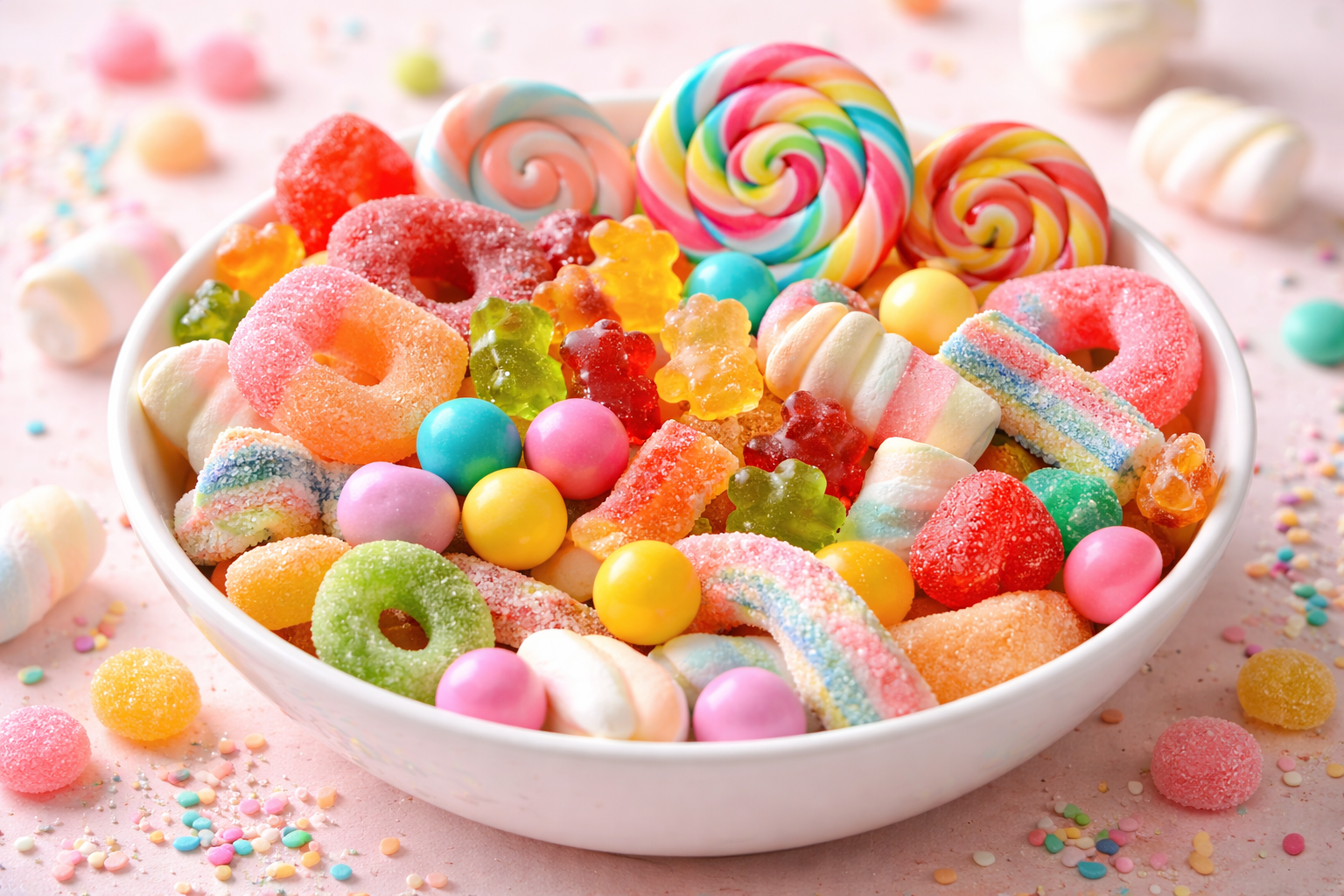Anuschka’s
Blog
Photographer in Adelaide, South Australia

How Too Much SUGAR CAN AFFECT Your Child's Behavior During a Photo Shoot
As parents, we all want our children to look their best for a photo shoot—whether it’s for family portraits, school pictures, or special occasions. We carefully select outfits, plan the timing, and make sure everyone’s in the right mood. But there’s one factor that is often overlooked when preparing for a photo session:
SUGAR
While a quick sugary snack might seem harmless or even like a good idea to keep kids energised, it can actually have a significant impact on their behaviour.
Let’s dive into how consuming too much sugar can negatively affect children during a photo shoot and why it’s something parents should be mindful of.
The Sugar Rush: What Happens to Kids’ Bodies?
Sugar, particularly refined sugar, is a quick source of energy for kids. When they consume sugary foods or drinks, it leads to a rapid spike in their blood sugar levels, followed by an equally rapid crash. This roller coaster of energy can cause kids to feel hyperactive, irritable, or even fatigued. In the context of a photo shoot, this sugar-induced behavior can quickly become problematic.
Here’s what happens step-by-step:
Immediate Energy Surge The high sugar content leads to an energy burst, often causing kids to become more energetic than usual. They might start bouncing around, fidgeting, or being unusually talkative.
Sugar Crash After the initial spike, blood sugar levels drop, leaving kids feeling sluggish, tired, or moody. This sudden dip in energy can make them uncooperative or distracted.
Mood Swings The fluctuation in blood sugar can trigger mood swings, leading to irritability or frustration, which is the last thing you want in front of a camera.
The Impact of Sugar on Focus and Cooperation
A photo shoot requires kids to sit still, follow directions, and look at the camera at the right moment. Sugar overload, however, can make this challenging.
Lack of Focus The energy surge from sugar can make it difficult for kids to concentrate on the task at hand. They may become easily distracted by their surroundings or lose interest in posing for the camera.
Short Attention Span A child who’s had too much sugar might have difficulty staying still or following instructions. You might find yourself constantly needing to remind them to look at the camera, smile, or stay in position.
Restlessness The initial burst of energy often leads to restlessness. A child who’s bouncing off the walls may have trouble staying in one place, making it harder for the photographer to capture the perfect shot.
Behavioral Issues: From Hyperactivity to Meltdown
Too much sugar intake can significantly affect a child’s emotional well-being. Beyond its physical consequences, sugar can amplify feelings of stress and frustration. When children feel overwhelmed or overstimulated, they may experience emotional outbursts or resist participating in activities like a photo shoot. The aftermath of a sugar rush often leads to irritability, making them cranky and less cooperative. Additionally, a sudden drop in blood sugar can trigger defiance, causing them to ignore instructions or the photographer’s guidance. As the initial excitement fades, fatigue can set in, resulting in grumpiness or disengagement, which complicates the task of capturing joyful, candid moments.
What Parents Can Do to Avoid Sugar-related Issues
While it’s tempting to give kids a sweet snack to keep them entertained, especially if the shoot is running long, it’s better to opt for more stable sources of energy that won’t interfere with their behavior. Here are a few tips for managing sugar intake before and during a photo shoot:
Limit Sugar Before the Shoot Try to avoid sugary snacks and drinks (especially those high in refined sugars) in the hours leading up to the photo shoot. If your child is hungry, offer a balanced snack that includes protein, healthy fats, and whole grains. This will help keep their blood sugar levels steady.
Hydrate Dehydration can also lead to irritability and fatigue. Encourage your child to drink water throughout the day, and avoid sugary beverages like soda or juice.
Bring Healthy Snacks If your child needs a snack during the shoot, opt for healthier options like fruits or nuts. These will provide sustained energy without the sharp ups and downs associated with sugar.
Plan the Timing Schedule the photo shoot at a time when your child is usually well-rested and in a good mood. Avoid scheduling the session too close to nap time or at the end of the day when they may already be tired or cranky.
Sweet Reward after the Photo Shoot
Once the photo session is over and your child has behaved like a star, offering them a sweet treat as a reward can be a fun and positive way to celebrate their good behavior—just make sure it’s a little after the shoot, so you don’t risk the sugar rush mid-session!
Conclusion
While sugar is a part of most children’s diets, it’s important to be mindful of how it affects their behavior, especially during something as important as a photo shoot. By understanding the potential negative impacts of sugar on mood, energy, and focus, parents can make better choices in preparing for the session. By limiting sugar intake and opting for healthier alternatives, you’ll increase the chances of capturing beautiful, genuine photos that truly reflect your child’s personality.
Contact
